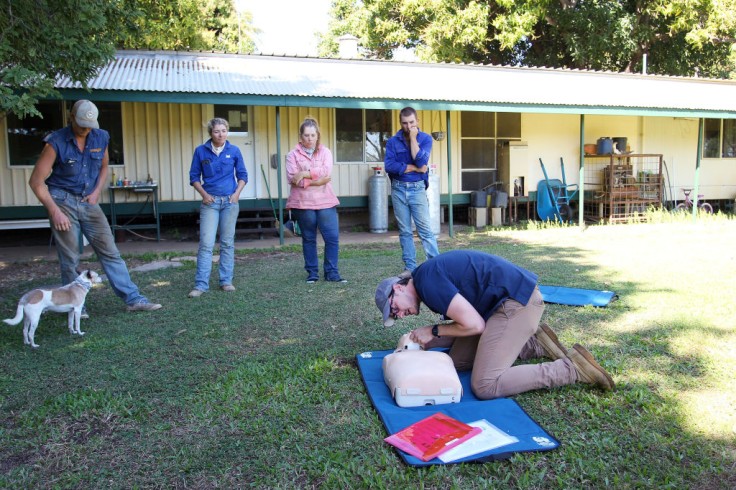
Brian Brant, a 64-year-old grandfather was lying in bed and getting ready to sleep when he suddenly went into cardiac arrest. His wife, Susan Brant, 64, tried to shake him up without any response so she immediately did CPR chest compressions that lasted seven minutes.
The paramedics who arrived at their home then proceeded to use an automated external defibrillator (AED) on Brian because his pulse remained unstable. He was still unresponsive at the Cleveland Clinic Medina Hospital more than 30 minutes after his cardiac arrest but the medical team did not give up on the grandfather until he came around and woke up close to midnight.
The medical team said that if not for Susan's CPR awareness, her husband would have not survived. Susan had training as a respiratory therapist but she admitted to News 5 Cleveland that she was hyperventilating while doing chest compressions.
Dr. Lisa Derrick of the Cleveland Clinic Medina Hospital, however, noted the importance of CPR awareness because most cardiac arrests take place outside of medical facilities. She said that it's definitely something everyone can learn.
CPR is Crucial to a Patient's Survival
Experts at the University of Michigan Health said that only six percent survive a cardiac arrest because CPR awareness is not widespread. Unlike fire or tornado drills, CPR training is hardly taught to the public.
Dr. Robert Neumar said that administering CPR following a medical emergency is crucial to a patient's survival rate. If family members know how to respond then there will be more lives saved.
Michigan has launched its "Heartsafe Home" awareness campaign to help families establish a plan in case of such an emergency. They need to be familiar with multiple roles in case someone will experience a cardiac arrest. It's important for the household to identify who can perform the CPR compressions and who will call 911.
CPR awareness also means yearly drills or refreshers. CPR certification is given to successful trainees but getting formally certified is not the priority. The goal is for family members to know what to do and be prepared for this incident.
CPR is Easy to Learn
Every second counts following a cardiac arrest. Without CPR, the survival rate of the patient goes down by 10 percent every minute.
Family medical emergencies arise during the summer season, with the kids involved in many outdoor activities. Thus, the American Heart Association recommends CPR training, which will also help with drowning incidents, aside from cardiac arrest.
There are various resources for learning CPR, such as online classe, in-person sessions and blended sessions. These classes take about 30 minutes to an hour.
Training materials and other helpful or informative documents are also available online via the American Heart Association or the American Red Cross. The organization also provides Alexa-enabled resources for information about CPR, cardiac arrest, heart attack and other emergencies.